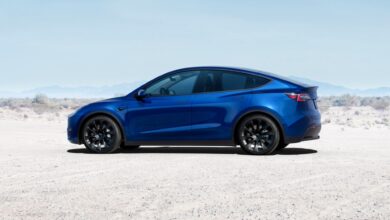Do Trucks or SUVs Weigh More on Average?

Vehicles in the American auto market have gained weight and gained more horsepower over the past few decades. While safety concerns and rising fuel prices reduced the size of automobiles in the 1970s, the size of pickup trucks and SUVs has grown since then. So which vehicle class is the best/worst on this front? Are they pickup trucks or ?
Pickup trucks and SUVs are bigger than ever
According to , since 1975, pickup trucks have increased in weight by 27% and SUVs are now at least 5% heavier. While pickup trucks and SUVs have gotten significantly larger, they have . Interestingly, the average new vehicle has seen a 79% horsepower increase since the early 1970s, with pickup trucks posting the most significant gain at an astounding 143%. Meanwhile, SUVs have seen a 72% increase in horsepower.
It has a curb weight of 6,734 lbs, equipped with a 7.3-liter V8 engine capable of generating 430 hp and 485 lb-ft of torque, going a long way from the early days of the lighter aluminum F-150 pickup truck. Meanwhile, the electric SUV weighs 9,063 pounds, with a GVWR of 10,660 pounds, making it one of the largest passenger vehicles on the market.
While pickup trucks and SUVs have grown in size over the past few decades, pickup trucks weigh significantly more than their predecessors for various reasons.
Why do trucks keep gaining weight?
For over 40 years, the Ford F-150 pickup truck has been the go-to pickup truck in America. According to , over the past four decades, pickup trucks have “got bigger, heavier, and more complicated, and they’ve morphed from utility vehicles to family cruisers.” Around 2010, the smaller pickups faded into the background and the SUVs now dominate the market.
Despite their larger size, research suggests that about one-third of pickup truck owners rarely use their trucks for transportation, and two-thirds rarely tow anything. Axios reports that most truck owners now use their vehicles for “shopping, errands, commuting and Sunday trips.” Their research indicates: “When placed next to each other, the trend towards fewer beds and more cabins is clear. They were 36% in cabin and 64% in bed by length. By 2021, the ratio has flipped, with 63% cabin and 37% bed.
As the demand for more horsepower, improved luxury features, and more room for the family grew, pickup trucks continued to get heavier to meet consumers’ desire for comfort and everyday use.
Are electric pickup trucks getting heavier and causing safety issues?
With pickup trucks receiving the lion’s share of auto sales in recent years, automakers are earning substantial profits, aiding in the automation of driving and ramping up EV production.
Electric vehicles, which are much more fuel-efficient than gas-powered pickup trucks and SUVs, are also getting heavier due to battery size. The increase in size is causing greater safety issues, especially for electric trucks like the . The full-size electric pickup weighs nearly 7,000 pounds, about 1,000 pounds more than the heaviest F-150 model.
So as automakers push towards cleaner energy and EVs, the weight of most pickup trucks and SUVs doesn’t appear to be dropping anytime soon.




